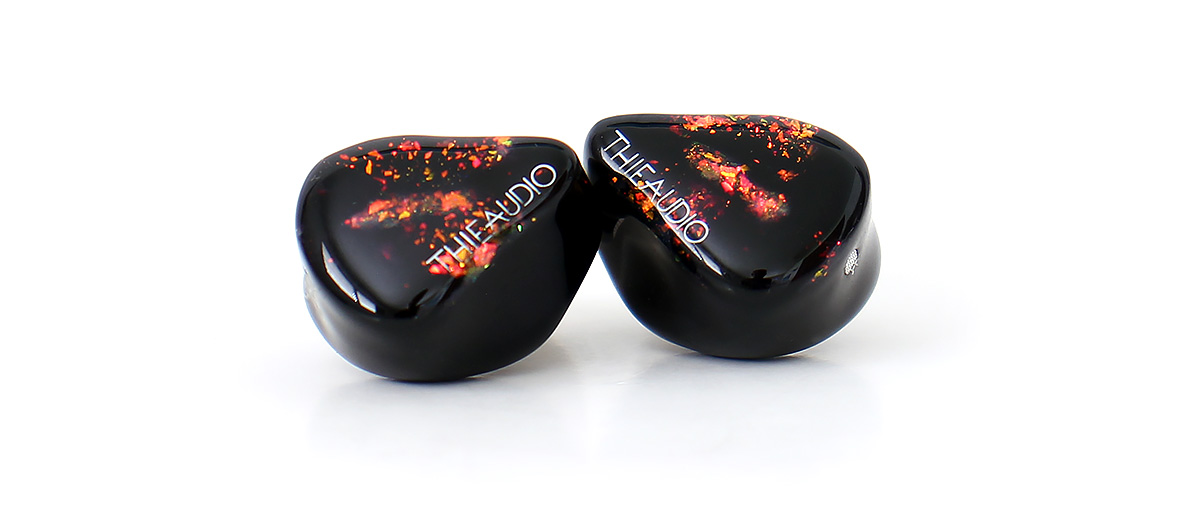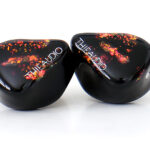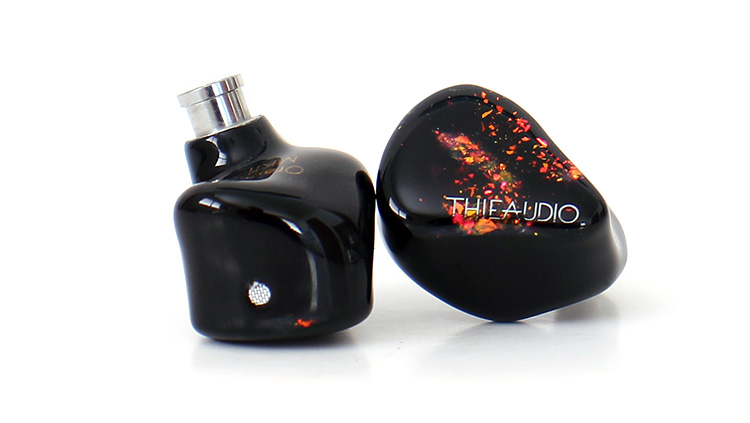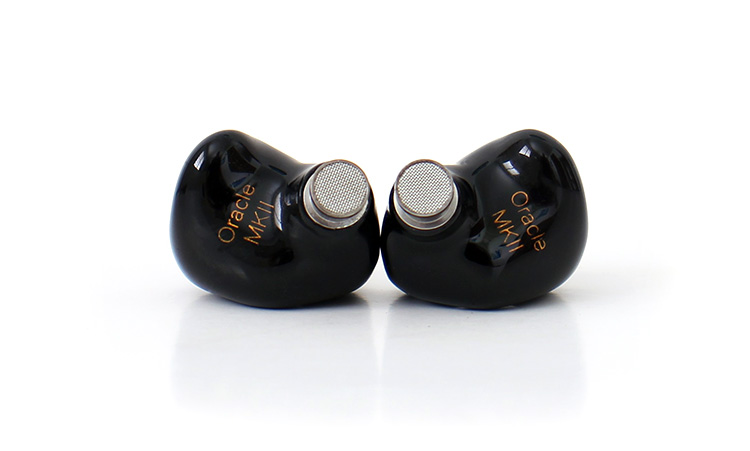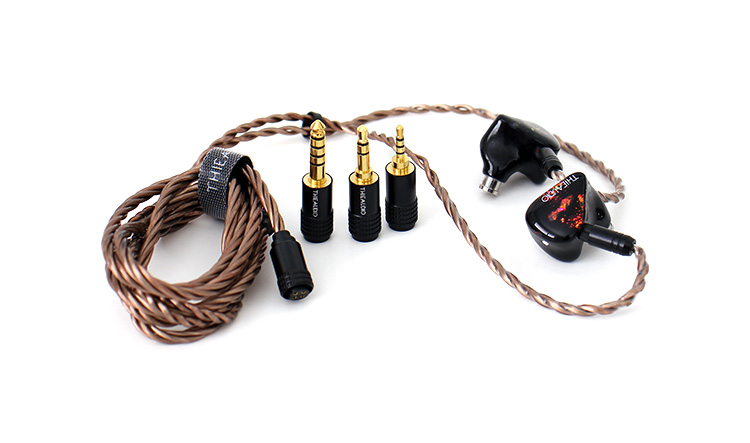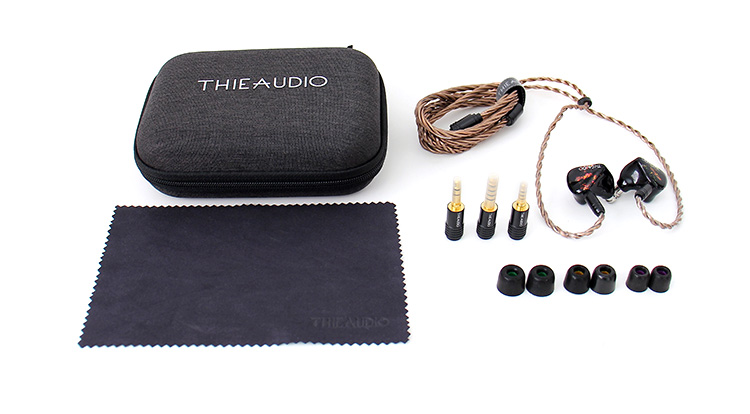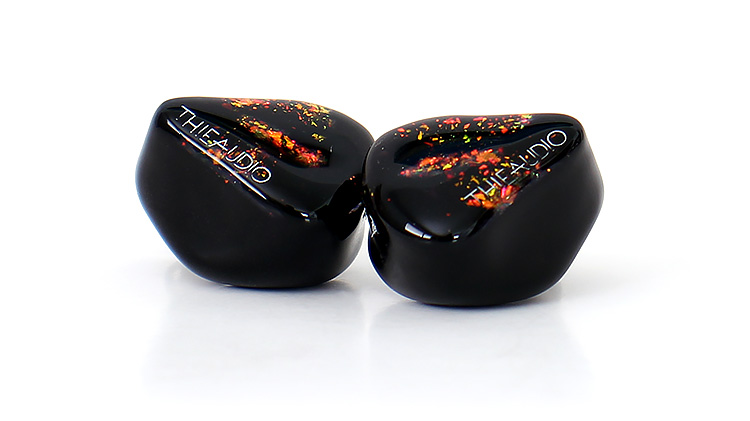We review the THIEAUDIO Oracle MKII, which is a hybrid IEM featuring a 10mm dynamic driver, 2 Knowles BA, and 2 electrostatic tweeters. It is priced at $589.
Disclaimer: This is a sample in exchange for our honest opinion. Headfonics is an independent website that does not have any affiliate links or status. We thank Linsoul for this opportunity.
To read more about Thieaudio products we have previously covered on Headfonics please click here.
Note, that this article follows our latest scoring guidelines which you can read up on here.
THIEAUDIO has hit a high note a few times so far since opening its doors. Their Monarch MKII is spoken about around many audio circles constantly and we have extensively reviewed other variants including the recent Elixir and the Legacy models, 2 and 5.
Well, today we have one of their other MKII IEMs and one which is at a more reachable point price-wise, the THIEAUDIO Oracle MKII. In definition, the word Oracle conveys revelation so perhaps revelation is their niche and the concept being offered here.
THIEAUDIO says the original Oracle was designed to be a tonally balanced studio monitor-like model and the MKII is being marketed as the next generation of that vision.
However off the bat what I see is a veer from that to a fun tuning rather than a flat for studio monitor which offers no fun factor at times.
Tech Highlights
It’s rather obvious that THIEAUDIO likes to use Sonion EST tweeters since they use them on many of their IEMs. It seems to be their thing and that’s not a bad thing. THIEAUDIO calls their use “ultra treble unlocking” and I agree since most models that use these drivers tend to have a high-frequency response that is not timid in any sense.
The Oracle MKII internal driver structure consists of a 3-way system starting with a set of Sonion dual tweeters with the addition of a dual BA driver assembly and a dedicated bass driver.
To be more specific, there’s a 10mm LCP dynamic bass driver and the other array consists of a Knowles and Sonion BA combo set. The Sonion tweeter section uses two EST tweeters in one housing. So considering all that, there’s a total of five drivers altogether.
The Oracle MKII uses a 3-way crossover to tie the 1+2+2 driver array. THIEAUDIO calls it a Tribrid system and claims a ruler flat frequency response between the 200Hz and the 1kHz frequency range. It doesn’t seem they were aiming for flat looking at the Oracle MKII frequency response measurements, but then again who looks at graphs?
Design
Most of the THIEAUDIO IEM lineup uses what I would call a universal fit shell design in which the shells are shaped to fit a wide range of inner ear sizes and types. THIEAUDIO does tweak the design here and there and in almost unnoticeable increments.
It seems these particular Oracle MKII shells have a longer output port compared to the original Oracle model. It’s certainly an improvement over the Legacy 5 output stem we reviewed last year. Mainly because the border around the aluminum output port tube holds onto the installed tip very well.
The Oracle MKII shells are resin-based and seamlessly assembled. THIEAUDIO didn’t skimp on visuals since even the vent holes have tiny little grills on them. Our model came in black with what they call the Tiger color scheme but there’s a second color scheme available which they called Black Scarlet.
Connectivity is achieved by a 0.78mm flush-mounted female connection which connects to the stock cable’s B pin type dual pin connectors. This type of connection is universal and most 0.78mm cable assemblies can be used with this IEM.
Comfort and Isolation
To judge comfort I wore the Oracle MKII for long periods of course but I also try to receive comments from others around me to get a different perspective. I received one negative comment from one of around 11 people I asked.
I felt no comfort issues and I have a fairly common ear shape and size. One tends to feel the penetration of the tip more than anything else or at least in my case. As long as you choose the correct tip size I doubt you’ll have comfort issues.
But the one aspect that kept intriguing me was how well the Oracle MKII isolated the listener from the outside world. It was almost at an active ANC level but of course not as effective compared to some of the top-notch ANC implementations but close enough.
Tips
The THIEAUDIO Oracle MKII comes with a set of silicon tips preinstalled and there are two more that come with the set along with 3 sets of foam tips but that’s it. It’s not a stellar amount of tips and perhaps some would consider this a con but not a dealbreaker.
The Oracle MKII does have another noticeable characteristic and that is not having much of a sensitivity to ear tip selection. In other words, I only noticed small and slight changes in tonality when changing ear tips. Perhaps the most notable areas were within the stage size.
It seems THIEAUDIO tuned the Oracle MKII precisely at the tip level and designed them to just be popped into the ear canal and sound good. There are no interchangeable nozzle tips or anything, just a fixed metal grill with many very small perforations which all the sound comes out through.
Stock Cable
The Oracle MKII stock cable is not assembled with an intricate and artful braid but rather a four-wire twisted set assembled with 4-strand 5N oxygen-free silver-coated copper cable in copper-tinted insulation.
On the surface, you could tell some care went into the quality and construction. The only issue I found was a rather high level of noise transmission or what some call Microphonics.
The cable comes assembled with all metal hardware and all pieces are finished off with an all-black satin finish. The cable assembly measured almost exactly four feet which is a perfect length for portable use.
The best part about this cable assembly is that it comes with an interchangeable tip system and THIEAUDIO includes a 3-tip set that consists of a 4.4mm balanced connector, a 2.5mm balanced connector plus a single-ended 3.5mm plug.
So you’re well covered on most fronts as far as connectivity right out of the box.
Packaging & Accessories
The Oracle MKII accessory lineup consists of a storage pouch, the 3 tips, the cable assembly, six sets of ear tips plus a cleaning microfiber cloth.
One could call it an almost minimalistic approach in packaging and again, I must complain about the lack of ear tips if we were to compare the included set with other models, even at a lower price bracket.
All the items come inside a flip-top-to-open box that once opened displays the IEMs, the cable assembly, and the fascia of the storage case. The rest of the Oracle MKII accessories are placed inside the storage case.
Sound Impressions
Summary
Studio monitor tuning you say? I say nay. Just one glimpse at the THIEAUDIO Oracle MKII frequency response measurement graph almost tells the whole story. This IEM has a V-shaped tuning in every sense but it’s not overcooked or overly saturated in tuning.
The Oracle MKII has a good amount of full-bodied low-end extension which is almost flat from 22Hz and out into the midrange section where it slightly dips in output. There is a slight dip below which starts to occur below 22Hz but the set is audible way below the 20Hz mark. There is a very good amount of bass extension with a slightly noticeable midbass emphasis.
When it comes to bass bleed THIEAUDIO managed to make it nonexistent since the bass driver acts independently which just gives the midrange room to breathe. The mids shine through on this IEM with lots of clarity, a true-toned pitch, and a nice, airy character with lots of body.
The Oracle MKII treble response is forwardly presented at almost any volume level. There are some audible peaks at 3kHz and 5kHz, but there’s a rather large one at around 7kHz which is quite elevated and intense. Some might perceive an excess amount of brightness and intensity due to that peak.
Timbre
Listening to the THIEAUDIO Oracle MKII I realized that the treble response was not the hero here but the midrange response and presentation although output levels drop a couple of decibels from the rest of the spectrum. It seems they have a sizzling character in the upper midrange region that works in their favor most times.
For example, the midrange has a good ability to reveal detail in the sense that you can hear those last nuances at the end of a song because they’re bought forth in presentation more so than on other IEMs.
A particular song I’m very familiar with had a soulful OWE at the end that I never heard before followed by a Michael Jackson type of vocal shuffle, I heard that for the first time on the Oracle MKII. So it seems revelation is one of their strong points. It wasn’t a Michael Jackson song BTW. It was a Debarge track.
Staging & Dynamics
The Oracle MKII bass can deliver quite a wallop if you turn up the lower bass frequencies and the good part is that the bass remains fast, responsive, tight, and retains a good amount of definition. You could almost reach bass head levels with a slight boost below 80Hz.
If you decide to do so, fortunately, it doesn’t affect the rest of the frequency spectrum either and the stage also remains intact. Some IEMs can’t handle a bass boost but these can with no ill effect on the rest of the spectrum either.
The soundstage overall is wide, deep, and slimly tall since most instruments remain below, at, or right above your vision line. It’s also very precise far as placement and panning accuracy. There’s plenty of layering within the front stage and more so on the sidelines.
It seems the Oracle MKII wants to mimic a concert hall sound characteristic in which most instruments sound as if they’re upfront and on stage with good side placement and positioning.
Click on page 2 below for pairings and our selected comparisons.

